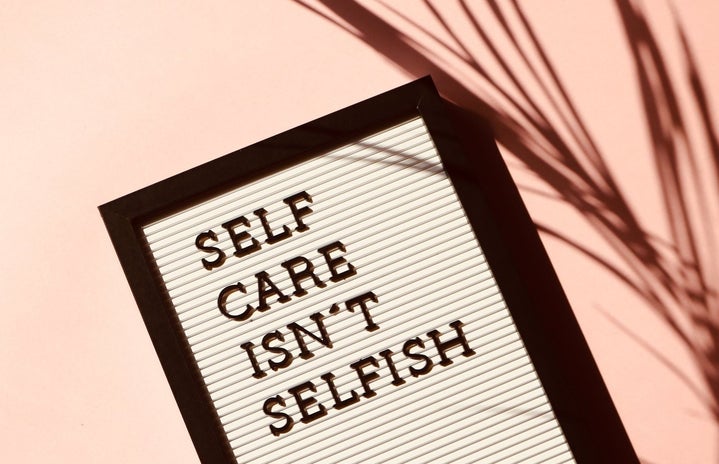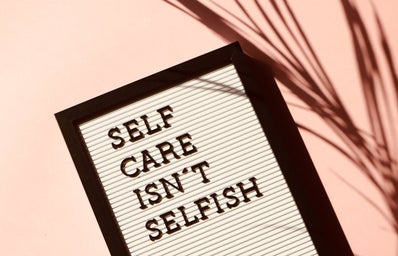Living in a “go-go-go” world can be exhausting. Hustle culture is real, and we are made to feel that we always need to be working and that we should feel guilty if we aren’t. This can make it extremely difficult, or nearly impossible, for us to take the time we need for self-care. Personally, I enjoy school and my job. I really like working, and feel good when I’m productive. Lately, it has been catching up to me and I’m beginning to learn that balance is key. For anyone else feeling this way, I hope these tips work for you or inspire you. There are numerous sources out there with lots of self-care tips. However, in this article, I hope to provide some new suggestions that you might not have seen before.
1. Research your dream jobs and other positions in the field you hope to go into.
Now, you might be thinking “if self-care is supposed to be a break from work, why would I look up jobs?” Well, that’s a great question. I am not suggesting that you look up job applications, but that you research companies/organizations/people that work in jobs and the field you are interested in. For me, this can be really exciting, and remind me why I’m working so hard. It can bring the excitement and end goal back in sight, as these things can be hard to remember during the daily grind. For example, as an International Studies major, I’m really passionate about development projects and improving people’s access to education, healthcare, etc. around the world. So, researching different nonprofits and NGO’s doing this work, and imaging myself working for one of them, can be really exciting and inspiring.

2. Read a book or listen to a podcast about a subject that interests you.
It’s probably safe to say that most people have many interests and passions. It is also probably safe to say that it feels impossible to address all of them. For example, a chemistry major might want to take some political science classes but doesn’t have time to do so in their schedule. That’s where books and podcasts come in. Setting aside 30 minutes or an hour a day to read a book on something that’s interesting to you, or listening or a podcast on a new subject while walking around campus, is a way that you can continue to learn and grow, without the pressure that comes with taking a class on the subject.

3. Partake in some kind of movement.
This can mean something different to everyone, and likely will. Moving your body could mean walking, running, stretching, going to the gym, doing yoga, etc. I often find that any of these things can help me disconnect from my stress and worries and enjoy some good music while increasing my endorphins and boosting my mood.
4. Cook a meal with your friends.
There is something really satisfying about cooking something from scratch, for yourself. Additionally, there is something special about sharing a meal with people you care about. As busy college students, it’s often easiest to heat something up in the microwave and eat it while doing your work. However, taking the time to cook with friends, and then eat your delicious meal together is a great way to decompress, and spend time with those who are most important to you.

5. Journal!
Sometimes it feels like there are so many things racing through my mind that I feel paralyzed. Other times, I feel like I’m in a funk but don’t know why. Writing things down allows you to get them off of your chest, almost as if you’re ranting to someone. And sometimes when you feel stressed or off and don’t know why dumping all your thoughts might help you figure out just that.

6. Turn off your phone for one hour a day and unfollow toxic people on social media.
In a society so connected to technology, it can be hard to disconnect from screens and my phone. Even if I’m taking a break from work, I find those breaks are often on my phone, looking at social media. But, turning off your phone allows time to do other things, such as reading a book or journaling (like suggested above) without distraction. Additionally, unfollowing people on social media that don’t make you feel good can improve your mental health and make social media more enjoyable. For me, I often find myself comparing myself and my life to social media influencers. This doesn’t always make me feel the best. So, last week, I went through my Instagram and unfollowed people whose posts don’t make me feel good.

7. Meditate!
A friend of mine said that meditating, even for just 10 minutes a day, really helps her relax and disconnect from the craziness of everyday life. There are many apps that provide guided meditations such as Headspace and Smiling Mind that can help you do this.

8. Recite daily affirmations.
Psychology Today tells us that reciting affirmations can be used to reprogram our subconscious and encourage us to believe certain things about ourselves based on the affirmations we recite. Thus, writing positive things can help us feel more confident about ourselves. And, when we feel more confident, we can handle school, work, family, and our social life in a better, healthier, and happier way.

9. Sit outside for 10 minutes.
According to Harvard Medical School, spending time outside can actually improve your happiness. Light is proven to increase someone’s mood and there is more light outside than inside.
10. Create SMART goals.
A few weeks ago my roommate told me about a meeting with her therapist who suggested creating SMART goals related to self-care. SMART stands for specific, measurable, attainable, relevant, and time-based. By following this approach, you can hold yourself accountable for self-care while also figuring out how to incorporate it into your busy schedule. For example, one of my roommates’ goals is to call or Facetime a friend every other Friday for at least 30 minutes. By setting these parameters, she can ensure she takes the time to do this and hold herself accountable, without feeling overwhelmed.





